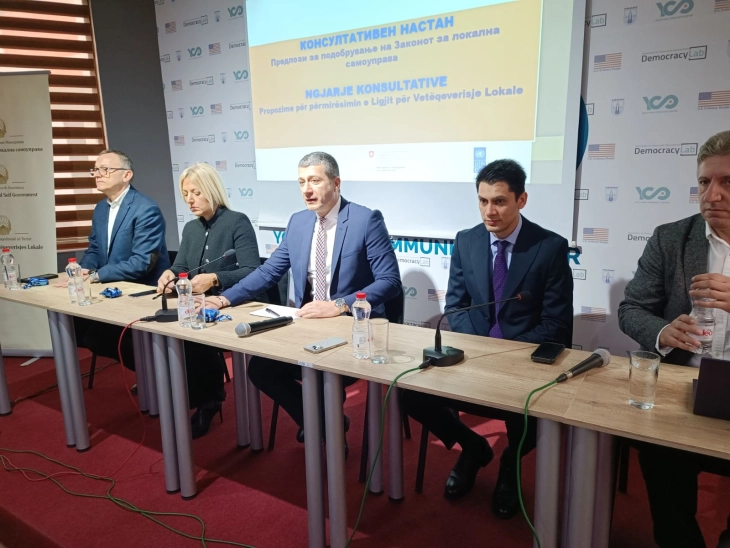Third consultative meeting on amendments to Law on Local Self-Government
- The third consultative meeting between the expert community, representatives from local self-government and the non-governmental sector, took place Monday in Gostivar.

Gostivar, 3 February 2025 (MIA) – The third consultative meeting between the expert community, representatives from local self-government and the non-governmental sector, took place Monday in Gostivar.
Through debates, the Ministry of Local Self-Government aims to enable active involvement of local self-government and non-governmental organisations in the process of preparing amendments to the Law on Local Self-Government.
Minister Zlatko Perinski noted that a law is being drafted which is systematic and based on several key principles. The new law aims to enhance transparency and accountability of mayors, foster greater inclusivity in creating policies and decisions in cooperation with citizens, strengthen the role of the communal police or communal supervision, and lastly ensure greater openness in the policymaking process by mayors.

“The priority in implementing of this law is the possibility of recall of the mayor through a referendum. This is important because, at present, we are witnessing, fortunately, only some mayors who act inappropriately and abuse the trust given by the citizens. I believe that we are on the right track to create a high-quality and well-supported legal solution that will, in the following period, meet the needs of both local self-governments and the citizens,” Perinski said.
He said that in the Law on Local Self-Government, in Article 22, which outlines the original responsibilities of local self-government, communal supervision should be recognized. This would then be further elaborated in the Law on Communal Activities, under the authority of the Ministry of Transport, with the competencies of communal supervision being broadened and enhanced.
“This measure will not only clear the waste but also raise awareness of public goods. We are witnessing, fortunately, only a small number of deviant behaviours where urban equipment placed by mayors is improperly handled, even though they invest significant funds from their budgets. We believe that such deviant actions will be prevented in the future,” Perinski said.
Law professor Aleksandar Spasenovski told mayors from the Polog planning region and representatives of non-governmental organisations that an expert group is working on the amendments.

“The starting point is that the Republic of Macedonia has created a good, excellent local self-government system, a significant part of which is the local self-government that has endured the test of time over the past 20 years. We genuinely have a good Law on Local Self-Government, but in the meantime, due to long-term implementation, certain weaknesses have surfaced that require addressing,” Spasenovski said.
The debates are part of the “Empowering Municipal Councils” project, which is funded by the Swiss Government and the Ministry of Local Self-Government, and co-funded and implemented by the United Nations Development Programme (UNDP) in collaboration with national and local partners.
Photo: MIA







